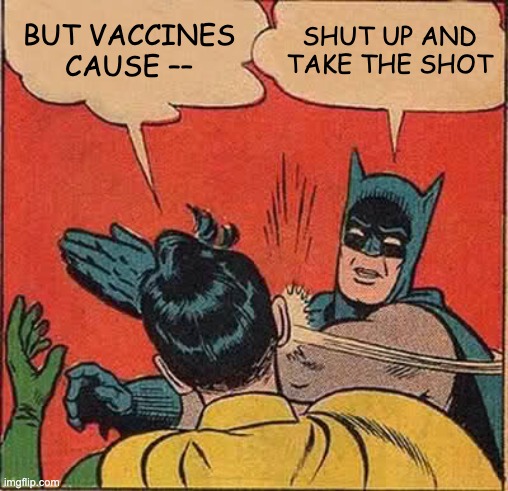How not to lose it at patients who do their own medical research.
Covid has been great for medical conspiracy theories the way damp bread is great for mould spores and corneas are great for sheep bot fly larvae.
Your Back Page correspondent is not a GP (you’re shocked, I know), so we’ve never had our patience tested by having to care for the health of someone who believes we, and medicine at large, are trying to harm them. Never really encountered conspiracy thinking in a context where we couldn’t just roll our eyes and move on.
What is the appropriate and constructive way to react when a patient presents with a head full of misinformation?

Not encouraged.
Writing in MJA Insight this week, three social psychologists offer a practical guide to understanding the reasons people believe false and dangerous things and how to engage with them.
Extraordinarily, they cite previous work (by one of the co-authors) showing that among Australians about 15% agree that “pharmaceutical companies are hiding evidence that vaccinations can cause serious illnesses and disabilities in children” and 10% agree that “fluoride is being used in water supplies to dim the minds of ordinary Australians to make them easier to control”.
The three chief reasons for conspiracy thinking they identify are: “an epistemic need to understand the world and increase certainty, an existential need to reduce threats and maintain a safe and stable environment, and a social need to maintain valued interpersonal relationships and a positive image of the self and in-group”.
Which one might boil down to the “I do my own research”, “Trust no one” and “I’m one of the cool kids now” types.
The authors provide strategies to counter each of the three types of thinking, which the Back Page translates as: “If you’re such a critical thinker, have you thought of this little flaw in your argument?”, “I am not the enemy, I’m right here with you” and “Actually, all the kids are doing it and that makes you kind of the weirdo in this situation”, respectively.
Of course there’s also all the guff about fostering empathy, bridging gaps and increasing receptiveness to conversation.
The authors encourage you to ask open questions and really get to understand the misapprehension, e.g. “When did you first start believing in [briefly include the conspiracy; for example, the covid-19 vaccine has been developed for financial gain by health professionals] and how has this impacted you psychologically?”; “What do these beliefs offer you?”; “Tell me more”; “I’m listening. Thank you for sharing” And “We must listen to each other – your voice matters, and I’m here to answer all questions you have about the vaccine today.”
By now you may be spotting the flaw in this talking therapy plan: there’s no five-hour-plus “Professional attendance for the purpose of dissuading patient that vaccine will make him one of Bill Gates’ army of the undead” item on the MBS.
Another argument for private billing, I guess.
If you see something that makes your microchip buzz, send it to felicity@medicalrepublic.com.au


